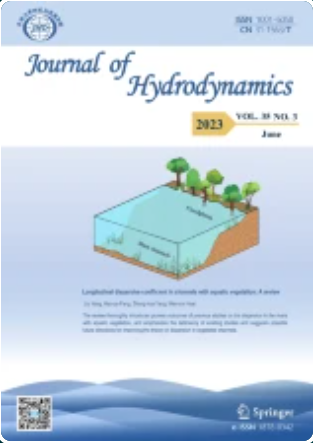Numerical analysis of a projecting wall type oscillating water column (PW-OWC) wave energy converter in regular waves
Abstract
Oscillating water column (OWC) based wave energy absorption devices are classic which have been widely used for harnessing ocean wave energy. This paper presents a numerical study on a projecting wall (PW) type OWC wave energy converter in regular waves. The computational fluid dynamics (CFD) modelling of a stationary floating PW-OWC model in a three-dimensional wave flume is achieved by the software Flow-3D. Numerical analyses are carried out based on CFD simulations and the linear potential flow solutions with modifications to account for turbine-induced damping. The present numerical solutions are validated against our previous experimental data. It is found that both the CFD and modified linear potential flow predictions are in reasonably good agreements with the experimental data in the first order results of OWC and air pressure responses. When the nonlinear responses are included in the result, the modified linear potential flow solution is found to slightly under-estimate the wave energy conversion performance at long wavelengths. Regarding the airflows above and below the chamber orifice, the CFD results suggest that they are almost unidirectional, oscillating in not only the base frequency but also subharmonic and ultraharmonic frequencies. The evolution of the OWC responses during an entire period and the phase analysis based on CFD simulations are presented. The phase results provide the crucial evidence to the reasonability of the physics-based modification of the potential flow model in modelling of OWCs. The present results and analysis are expected to be beneficial to the understanding on the physical mechanism of OWCs and the design of phase control strategies.

 求助内容:
求助内容: 应助结果提醒方式:
应助结果提醒方式:


